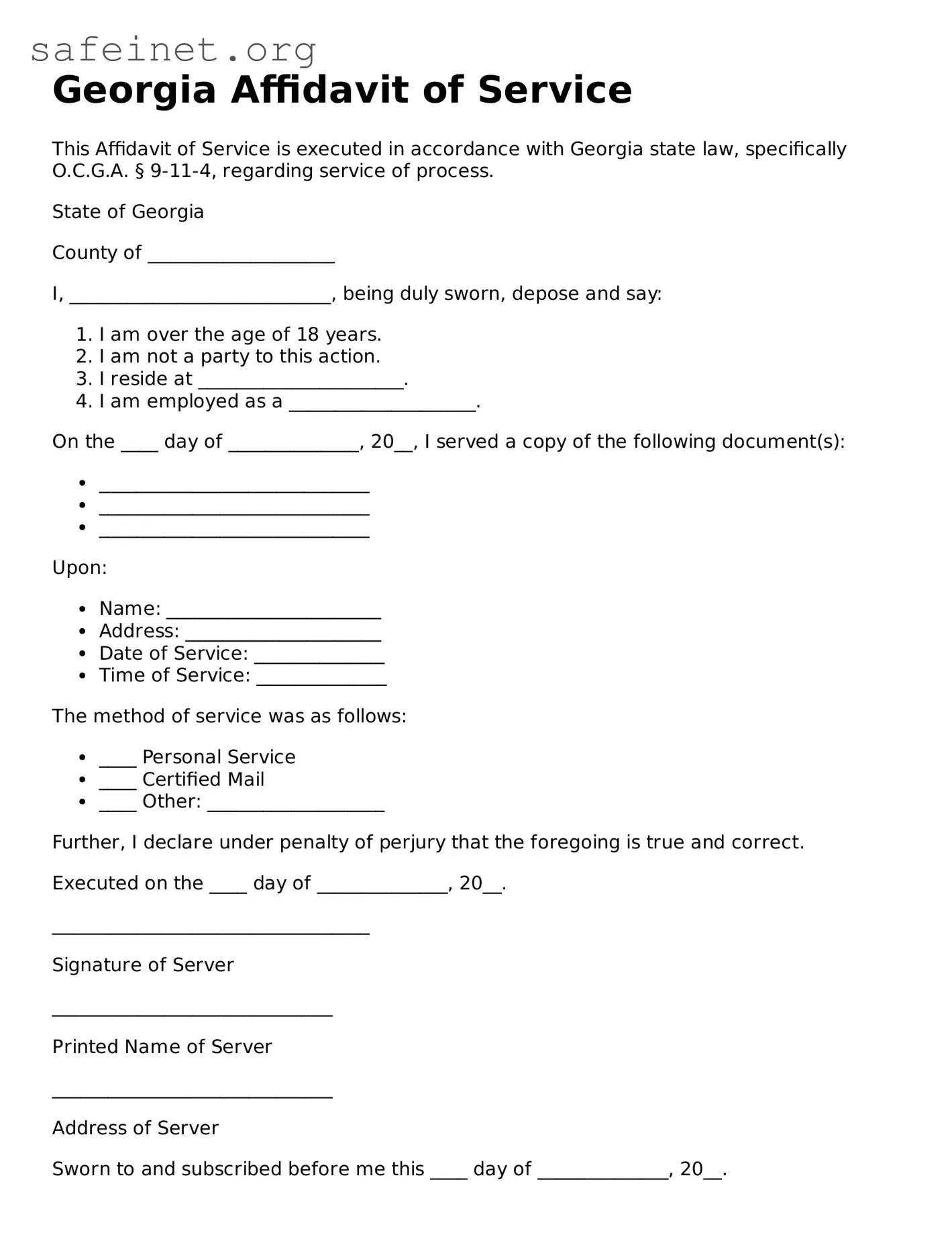What is the Georgia Affidavit of Service form?
The Georgia Affidavit of Service form is a legal document that confirms a person has been served with court papers. This could include summons, complaints, or other legal notifications. It serves as proof that the individual has received the documents required for a legal proceeding to ensure fairness in the judicial process.
Who is responsible for completing the Affidavit of Service?
A process server or a person who is authorized to serve legal documents typically completes the Affidavit of Service. This person must be at least 18 years old and not a party to the case. Their role is crucial in providing evidence that the individual being served received the necessary documents.
What information is required on the Affidavit of Service?
The Affidavit of Service must include specific details such as the name and address of the person served, the date and time of service, the manner in which service was accomplished, and the signature of the person who served the documents. Accurate and complete information is essential to ensure its validity.
When should the Affidavit of Service be filed?
The Affidavit of Service should be filed with the court as soon as possible after the service is completed. Timely filing ensures that the court has verification that the parties involved were properly notified, which is important for the next steps in legal proceedings.
Is there a fee associated with filing the Affidavit of Service?
In general, there may be a nominal fee for filing the Affidavit of Service with the court. Fees can vary depending on the courthouse. It is advisable to check with the specific court for the exact amount and any other applicable costs related to the filing process.
What happens if the Affidavit of Service is not completed correctly?
If the Affidavit of Service is filled out incorrectly, it can lead to delays in legal proceedings. Courts may dismiss the case if proper service is not substantiated. Therefore, accuracy is crucial, and it may be beneficial to consult an attorney if there are any uncertainties.
Can the Affidavit of Service be challenged?
Yes, an Affidavit of Service can be challenged in court. If a party believes they were not properly served, they may file a motion contesting the service. The court will then review the evidence presented to determine whether the service was valid.
Do I need a notary public for the Affidavit of Service?
A notary public is not always required but may be necessary depending on local court rules. Some jurisdictions may require the Affidavit of Service to be notarized to confirm the identity of the process server and the authenticity of the document. Always check local requirements.
What should I do after filing the Affidavit of Service?
After filing, it is essential to keep a copy of the Affidavit of Service for your records. Additionally, monitor the court schedule for any upcoming hearings. Ensure that you follow any further instructions or deadlines set by the court related to your case.
